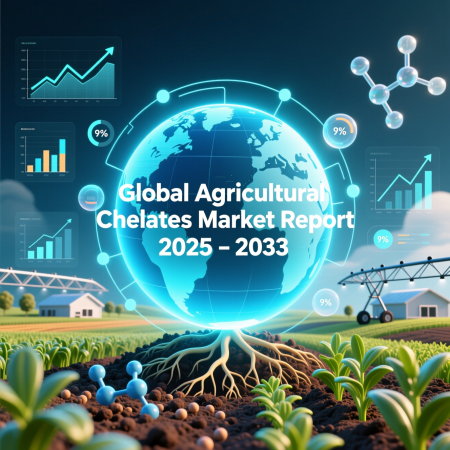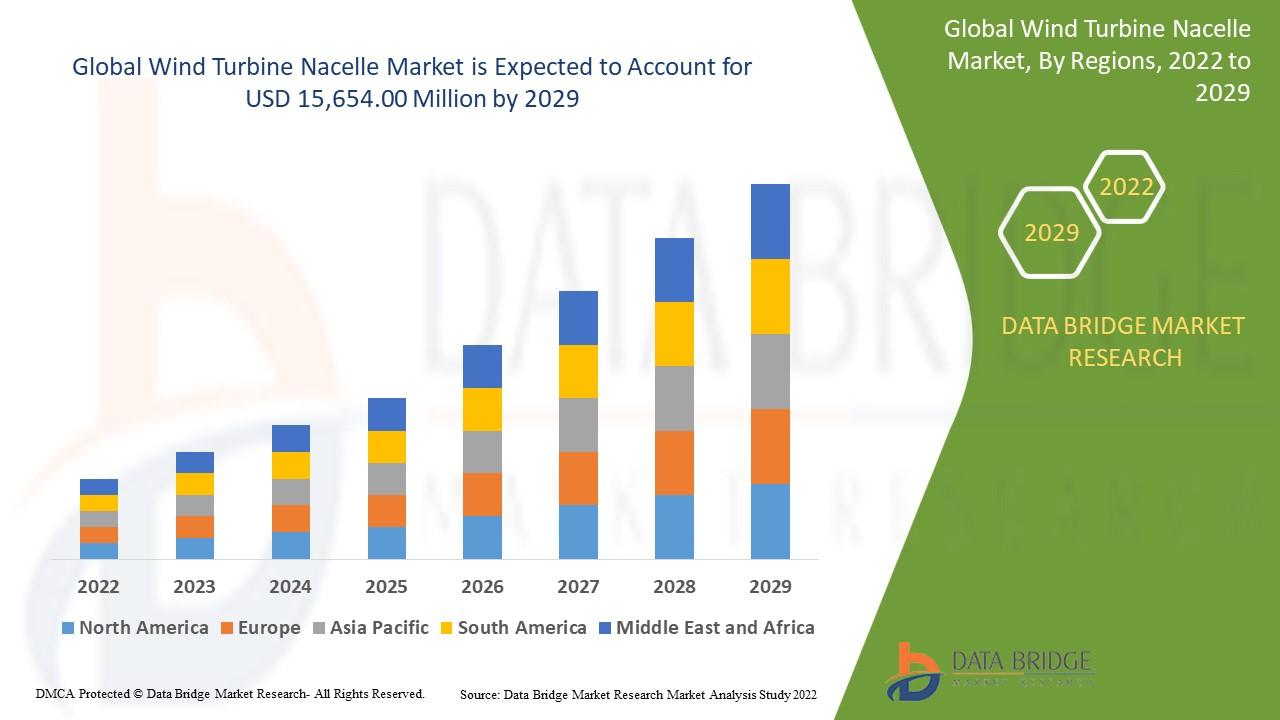Agricultural Chelates Market Applications 2025: Trends, End-User Analysis, and Regional Insights

The global agricultural chelates market is on a robust growth trajectory, valued at USD 750.8 million in 2024 and projected to reach USD 1,222.6 million by 2033, expanding at a CAGR of 5.57%. Driven by rising demand for high-efficiency fertilizers, increasing adoption of precision agriculture, and growing concerns over soil degradation, chelates are becoming essential for enhancing micronutrient availability and crop productivity. As global food demand surges alongside population growth, agricultural chelates offer a sustainable solution to optimize yields while minimizing environmental impact.
Study Assumption Years
- Base Year: 2024
- Historical Year: 2019–2024
- Forecast Year: 2025–2033
Agricultural Chelates Market Key Takeaways
- The market was valued at USD 750.8 million in 2024 and is forecast to reach USD 1,222.6 million by 2033, growing at a CAGR of 5.57%.
- Synthetic chelates dominate the market due to their stability, cost-effectiveness, and scalability.
- Grains and cereals represent the largest crop segment, reflecting their critical role in global food security.
- Foliar application leads in usage, offering rapid nutrient absorption and bypassing soil-related limitations.
- Asia Pacific holds the largest regional share, fueled by large-scale farming in India, China, and Southeast Asia.
- Rising soil degradation and precision agriculture adoption are key growth accelerators.
- Major players are investing in innovative, sustainable chelate formulations to meet evolving agronomic needs.
Market Growth Factors
1 - Rising Demand for High-Efficiency Fertilizers
With the global population on the rise, the urgency to boost agricultural production is greater than ever. Conventional fertilizers often struggle with problems like nutrient leaching, volatilization, and soil fixation, which can lead to major losses and environmental issues. Agricultural chelates provide a solution by forming stable complexes with key micronutrients such as iron, zinc, and manganese, ensuring that these nutrients are accessible to plants even in tough soil conditions. This focused approach not only enhances crop yields and quality but also cuts down on the need for excessive fertilizer use, aligning with sustainable farming objectives. The reliability and efficiency of chelated nutrients make them crucial in modern agriculture, particularly in regions with nutrient-deficient soils or extreme pH levels.
2 - Growing Adoption of Precision Agriculture
Precision agriculture is changing the game in farming by using data to make smarter decisions, and agricultural chelates fit perfectly into this modern approach. With tools like GPS mapping, soil sensors, drones, and satellite imagery, farmers can pinpoint exactly where they need to address nutrient deficiencies and apply their inputs right on target. Chelates play a crucial role in this process by making sure that the micronutrients applied are readily available and effectively taken up by the crops. As the global precision agriculture market is projected to soar from USD 8.5 billion in 2023 to USD 20.2 billion by 2032, the combination of innovative farming technologies and high-quality chelates is driving significant growth. This partnership not only boosts productivity but also promotes efficient resource use and environmental care.
3 - Escalating Soil Degradation and Nutrient Deficiency
Soil health is really under threat on a global scale. The Food and Agriculture Organization (FAO) has found that around 33% of the world's land is facing moderate to severe degradation due to problems like erosion, salinization, acidification, and chemical pollution. These issues greatly limit the availability of nutrients, which has a direct impact on crop yields and food security. Agricultural chelates help to mitigate this by stabilizing micronutrients and preventing them from being locked away in the soil, which enhances plant uptake and boosts soil fertility. With more governments and farmers prioritizing regenerative and sustainable practices, chelates are becoming an essential tool for restoring degraded soils and ensuring long-term agricultural productivity. This increasing awareness and urgency about soil health are driving significant market growth.
Request for a sample copy of this report:
https://www.imarcgroup.com/agricultural-chelates-market/requestsample
Market Segmentation
Breakup by Type
- Synthetic: Includes EDTA, EDDHA, DTPA, IDHA, and others; dominates due to high stability, efficacy, and cost-efficiency.
- Organic: Includes lignosulfonates, amino acids, heptagluconates, and others; valued for biodegradability and eco-friendly profiles.
Breakup by Crop Type
- Grains and Cereals: Largest segment, driven by global reliance on staples like rice, wheat, and corn for food security.
- Pulses and Oilseeds: Important for protein and oil production, with increasing demand in developing economies.
- Commercial Crops: Includes cotton, sugarcane, and others requiring high nutrient efficiency for optimal yield.
- Fruits and Vegetables: High-value crops where quality and appearance benefit significantly from chelate use.
- Turf and Ornamentals: Used in landscaping and sports fields to maintain vibrant, healthy plant growth.
Breakup by Application
- Soil: Chelates are applied directly to soil to enhance root-zone nutrient availability.
- Foliar: Leading method due to rapid leaf absorption and effectiveness in correcting deficiencies quickly.
- Fertigation: Integration with irrigation systems for uniform nutrient delivery.
- Others: Includes seed treatment and hydroponic applications.
Breakup by Region
- North America (United States, Canada)
- Asia Pacific (China, Japan, India, South Korea, Australia, Indonesia, Others)
- Europe (Germany, France, United Kingdom, Italy, Spain, Russia, Others)
- Latin America (Brazil, Mexico, Others)
- Middle East and Africa
Regional Insights
Asia Pacific leads the global agricultural chelates market, driven by massive agricultural activity in countries like India and China. With India’s farming market projected to grow at 9.1% CAGR through 2032, the region’s need to boost yields for its vast population is accelerating chelate adoption. Government initiatives promoting sustainable farming, coupled with rising farmer awareness of micronutrient management, further fuel demand. The dominance of staple crops like rice - consumed by over half the world’s population - also underscores the region’s reliance on efficient nutrient solutions like chelates.
Recent Developments & New
While the source page does not provide specific recent news events, it highlights key market-moving trends: the integration of chelates with precision agriculture technologies, the push toward sustainable soil management amid widespread degradation, and strong growth in foliar applications. These developments reflect an industry increasingly aligned with smart, eco-conscious farming. Innovations in synthetic and organic chelate formulations continue to enhance nutrient delivery efficiency, supporting higher yields with lower environmental impact - setting the stage for continued market evolution through 2033.
Key Players
Akzo Nobel N.V., Aries Agro Ltd, BASF SE, Dow Inc., Haifa Negev Technologies Ltd., Mitsubishi Chemical Corporation, Nouryon, Nufarm Limited, Protex International SA, The Andersons Inc., Valagro (Syngenta AG), Van Iperen International B.V., Yara International ASA, etc.
Ask Analyst for Customization:
https://www.imarcgroup.com/request?type=report&id=5596&flag=C
If you require any specific information that is not covered currently within the scope of the report, we will provide the same as part of the customization.
About Us:
IMARC Group is a global management consulting firm that helps the world’s most ambitious changemakers to create a lasting impact. The company provides a comprehensive suite of market entry and expansion services. IMARC offerings include a thorough market assessment, feasibility studies, company incorporation assistance, factory setup support, regulatory approvals and licensing navigation, branding, marketing and sales strategies, competitive landscape, and benchmarking analyses, pricing and cost research, and procurement research.
Contact Us:
IMARC Group
134 N 4th St. Brooklyn, NY 11249, USA
Email: sales@imarcgroup.com
Tel No:(D) +91 120 433 0800
United States: (+1-201971-6302)







